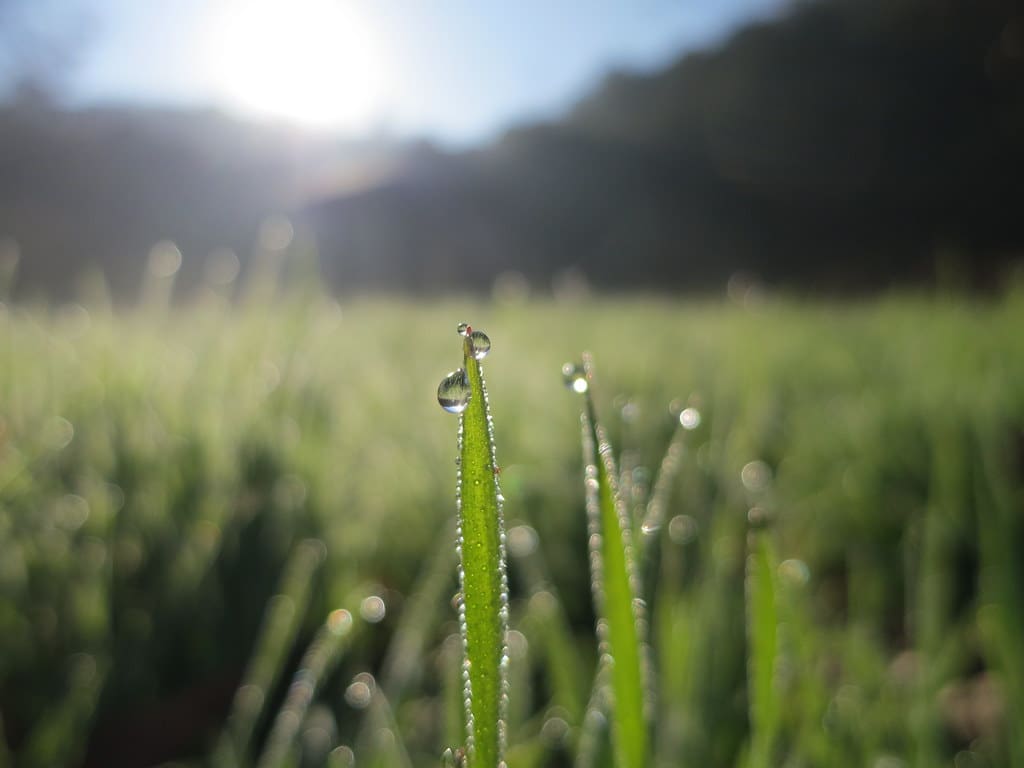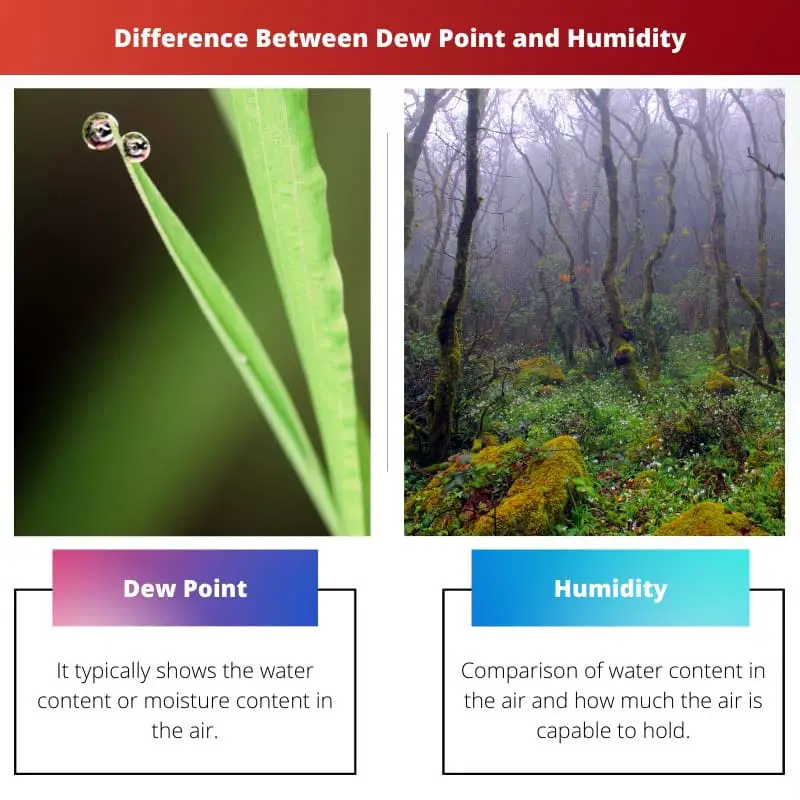The meteorological department uses a lot of terms to indicate every small change happening in nature. Assigning specific names to phenomena give a clear understanding.
Dew point and Humidity are two such phenomena that appear similar but are quite different from each other. In order to understand them correctly, one needs to study them in comparison.
Key Takeaways
- The dew point indicates the temperature at which air becomes saturated and water vapor condenses into liquid.
- Relative humidity measures the amount of water vapor in the air as a percentage of the maximum amount the air can hold at a specific temperature.
- High dew point values signal more moisture in the air, while high humidity values indicate air is closer to saturation.
Dew Point vs Humidity
Humidity is the amount of water vapor in the air relative to its maximum temperature, which can make it feel warmer and more uncomfortable. The dew point is the temperature at which water vapor in the air begins to condense into liquid water. When the dew point is high, the air has a lot of moisture.

The Dew point is a clear and straightforward indication of the water content present in the air. It is regarded as the first temperature after which the condensation of water vapour present in the air starts.
It is expressed in Celcius as well as Fahrenheit too. Its unit is Kelvin.
Humidity is a term that can be heard on a much more frequent basis. It is the comparison of water content that is present in the air and the water content which the air can hold.
It is also used after the water content n the air has started to saturate. Its unit is kg/m^3.
Comparison Table
| Parameters of Comparison | Dew Point | Humidity |
|---|---|---|
| About | It shows the water content or moisture content in the air. | Comparison of water content in the air and how much the air is capable to hold. |
| Degree | It is expressed in Celcius and Fahrenheit. | Humidity cannot be expressed in Celcius and Fahrenheit. |
| Water vapour | It is the point of condensation of water vapour present in the air. | It is not the point of condensation of water vapour present in the air. |
| Condensation | It is regarded as the first temperature where condensation begins. | It is regarded as where the saturation of water vapour begins. |
| Primary method | It is the primary method of checking water content in the air. | It is not the primary method and is expressed as a percentage. |
What is Dew Point?
Define the term which we all had studied at some point in time but have forgotten since it is not used as frequently in our daily life as other terms like hot, cold, warm and humid.
It is also regarded as a scientific term and not very important for the general public to use.
The meteorological department states that the dew point is the temperature at which the water vapour in the air starts to condense. It is also used to know the exact amount of water content in the air.
Therefore it is also regarded as the primary method of checking the water content in the air.
The dew point is the temperature and is therefore expressed in Celsius or Fahrenheit.
The unit of measurement for dew point is Kelvin since it is a temperature. Furthermore, when the temperature goes much below the freezing point of water, the name of dew point changes to Frost point.
The measurement of viewpoints is a b related to that of humidity, and that’s where the confusion starts. An easy way to remember this is – the more the moisture content in the air, the higher is the dew point.

What is Humidity?
Humidity is a very common term, and we use it on a daily basis. Whenever the weather feels very damp and sticky, we tend to say that the humidity of the air is higher.
What do you mean by this is the moisture content in the air is higher than usual. This is what humidity is. It is a comparison of the level of water in the air as compared to what year can normally hold.
There are three primary measurements that are used to determine humidity.
These are absolute humidity, relative humidity, and specific humidity.
It is not the point of condensation of water vapour present in the air but is regarded as the saturation of water vapour present in the air.
This is also not a primary method to know the moisture content of the air like the dew point.
Since it is a comparison, it also doesn’t use degrees of temperature like Celsius and Fahrenheit but is given as a percentage.

Main Differences Between Dew Point and Humidity
- Dew point is used to show water content in the air. Humidity is the comparison of the water content in the air and how much the air can hold.
- Dew point is expressed in Celcius or Fahrenheit, whereas this is not the case in measuring Humidity.
- Dew point is the point of condensation of water vapour present in the air. On the other hand, humidity is not the point where condensation of water vapour in the air begins.
- Dew Point is regarded as the first temperature from where the process of condensation starts. Humidity is regarded as the point where the saturation of water vapour begins.
- Dew point is the primary method of checking water content in the air, while Humidity is not the primary method and uses percentage to define the comparison.





